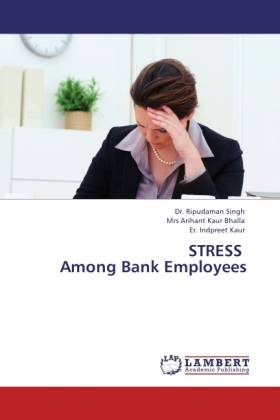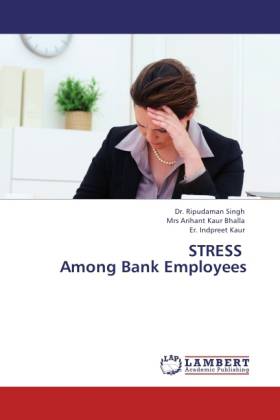
- Afhalen na 1 uur in een winkel met voorraad
- Gratis thuislevering in België vanaf € 30
- Ruim aanbod met 7 miljoen producten
- Afhalen na 1 uur in een winkel met voorraad
- Gratis thuislevering in België vanaf € 30
- Ruim aanbod met 7 miljoen producten
Zoeken
Stress Among Bank Employees
Ripudaman Singh, Arihant Kaur Bhalla, Er Indpreet Kaur
Paperback | Engels
€ 48,45
+ 96 punten
Omschrijving
Over the past few decades stress is emerging as an increasing problem in organizations. Stress is vigorous state in which a person is confronted with an opportunity, demand, or resource related to what the individual wishes and for which the outcome is perceived to be both vague and vital. (Selye, 1936) first introduced the idea of stress in to the life science. He defined stress as the force, pressure, or tension subjected upon an individual who resists these forces and attempt to uphold its true state. Basically what is stress? The HSE (Health Safety Executive UK) defines stress is an undesirable response people have to tremendous pressures or other types of demands placed upon them. Stress is inevitable. It affects everyone including bank workers and from all findings, it is still predominant in the industry. Banks should provide social and sport facilities for their workers. They should ensure that they give adequate training on stress and its management to their workers.
Specificaties
Betrokkenen
- Auteur(s):
- Uitgeverij:
Inhoud
- Aantal bladzijden:
- 72
- Taal:
- Engels
Eigenschappen
- Productcode (EAN):
- 9783845414997
- Verschijningsdatum:
- 17/07/2011
- Uitvoering:
- Paperback
- Formaat:
- Trade paperback (VS)
- Afmetingen:
- 152 mm x 229 mm
- Gewicht:
- 117 g

Alleen bij Standaard Boekhandel
+ 96 punten op je klantenkaart van Standaard Boekhandel
Beoordelingen
We publiceren alleen reviews die voldoen aan de voorwaarden voor reviews. Bekijk onze voorwaarden voor reviews.











